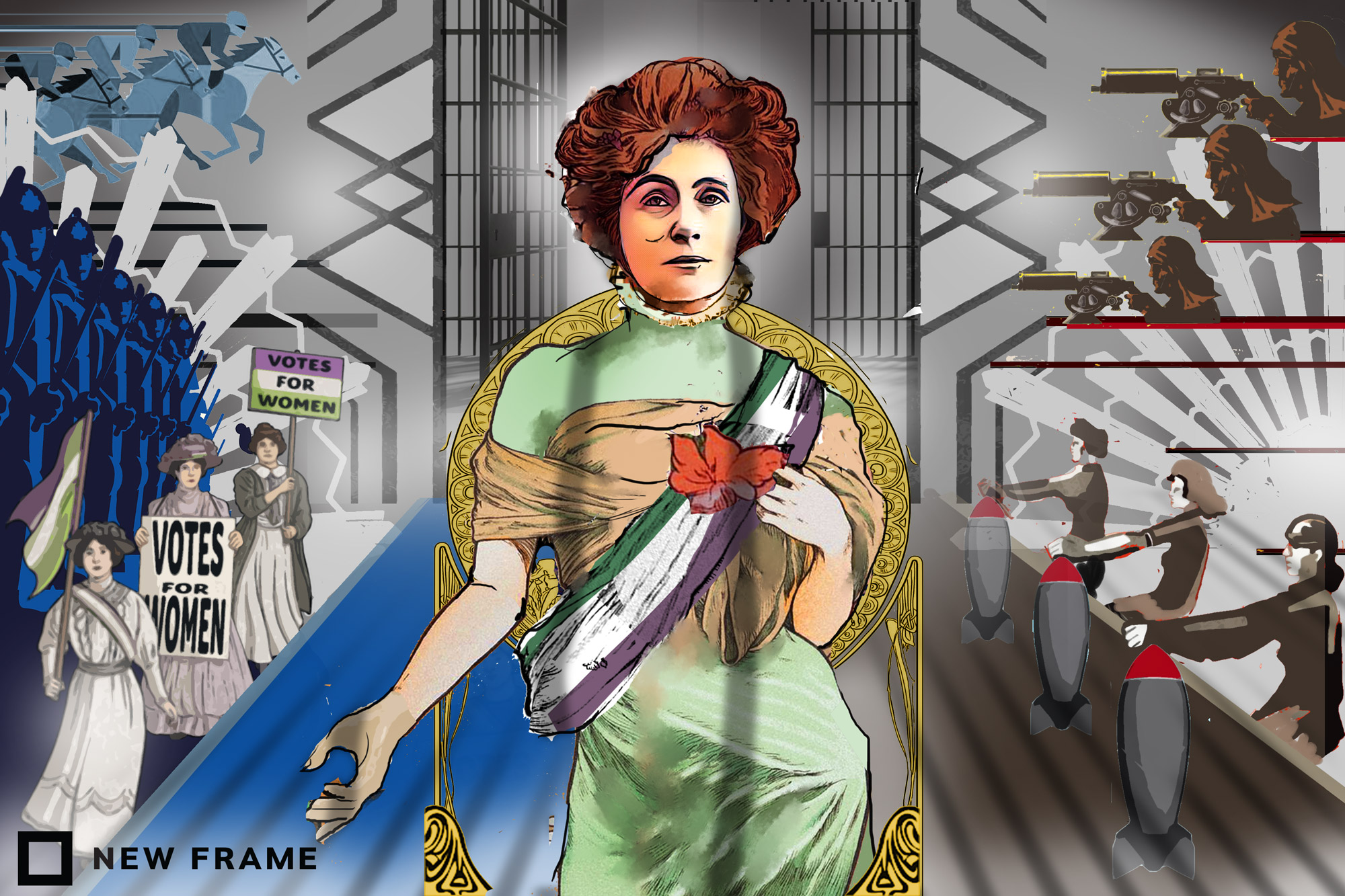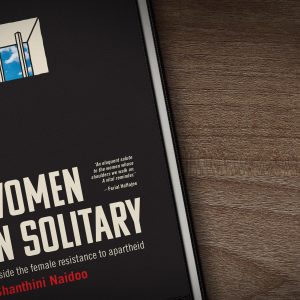Text Messages | Emmeline Pankhurst, a reed of steel
Speeches by the women’s suffrage leader in favour of enfranchisement were eloquent, pointed and forceful, making ‘our case clear’ by the ‘very simple fact that women are human beings’.
Author:
12 November 2020

A frequent political agitator is arrested, tried and sentenced to three years in prison. There, the convict goes on hunger strike. Prison authorities and the government of the day fear both force-feeding the prisoner and the probability of death after prolonged refusal of food.
An evil plan is hatched, the opposite of catch-and-release. Rather, they release their inmate after nine days of going without food. Liberated, the activism continues. The establishment swoops, in the “catch” part of the plan, rearresting their firebrand foe at a public gathering. The release-and-catch goes on three more times and then, out again, the campaigner leaves England for the United States, not to flee there but to garner support and funds for the cause.
In Hertford, Connecticut, on 13 November 1913, the escapee delivers a speech, destined to be one of the most famous of the 20th century. “Four times they took me back again; four times I burst the prison doors open again. And I left England openly to come and visit America, with only three or four weeks of the three years’ sentence of penal servitude served. Have we not proved, then, that they cannot govern human beings who withhold their consent?”
Those non-consenting beings were the members of the Women’s Social and Political Union (WSPU), founded on 10 October 1903 at a small house in Manchester, the family home of Richard Marsden Pankhurst and his wife Emmeline, née Goulden. The speaker was the selfsame Emmeline
Related article:
Pankhurst, the leader and inspiration of the women’s suffrage movement.
Fearless, visionary, a strategist of genius and organiser nonpareil, Pankhurst was also a consummate orator. Well before that day in the US, she had delivered memorable and excoriating speeches. In one, she outlined how much suffragettes would sacrifice to attain their goal.
“We shall never rest or falter until the long, weary struggle for enfranchisement is won. For the vote, we are prepared to give life itself – or, what is perhaps even harder, the means by which we live.”
‘Hoarse, sweet voice’
Arrested after a demonstration in Parliament Square in October 1908 and appearing before the magistrate at Bow Street, she explained the rationale and methods of the WSPU.
“I am here to take upon myself the full responsibility for this agitation. I want to make you realise that if you bind us over, we shall not sign any undertaking. We are determined to go on with this agitation. I do not come here as an ordinary lawbreaker – and in this I speak for all other women who in the same cause have come before you and other magistrates. If you had power to send us to prison not for six months but for six years, for 10 years, or for the whole of our lives, the government must not think they can stop this agitation. We are here not because we are lawbreakers – we are here in our efforts to become lawmakers.”
Eloquent, pointed and forceful: these were the characteristics of Pankhurst’s speeches and programme for female enfranchisement. To hear her speak was unforgettable, as the great novelist Rebecca West testified of the address at Hartford: “Trembling like a reed, she lifted up her hoarse, sweet voice on the platform, but the reed was of steel and it was tremendous.”
Related article:
Here is some of what Pankhurst said that day:
“I am here as a soldier who has temporarily left the field of battle in order to explain – it seems strange it should have to be explained – what civil war is like when civil war is waged by women.”
“We women, in trying to make our case clear, always have to make as part of our argument, and urge upon men in our audience the fact – a very simple fact – that women are human beings.”
“It is about eight years since the word militant was first used to describe what we were doing. It was not militant at all, except that it provoked militancy on the part of those who were opposed to it.”
“We were called militant, and were quite willing to accept the name. We were determined to press this question of enfranchisement of women to the point where we were no longer to be ignored by the politicians.”
From ‘every class’
“We wear no mark; we belong to every class; we permeate every class of the community from the highest to the lowest; and so you see in the women’s civil war the dear men of my country are discovering it is absolutely impossible to deal with it: you cannot locate it, and you cannot stop it.”
“If we win it, this hardest of all fights, then, to be sure, in the future it is going to be made easier for women all over the world to win their fight when their time comes.”
Related article:
Less than a year after Pankhurst’s speech, World War I began, bringing with it new and hitherto unthinkable roles for women – in food, clothing and arms factories, in hospitals, and even on the battlefield as ambulance drivers. Parliament passed an act allowing a qualified vote for women over 30 who kept households or were the wives of householders or landowners. It received Royal Assent in February 1918.
A little over 10 years later, in the way that life heaps joy and sadness together, the Commons and then the House of Lords enacted a bill giving the vote to all women over 18. The Lords’ approval came on 14 June 1928, the same day on which, a few miles from Westminster, in a Hampstead nursing home, Emmeline Pankhurst died peacefully at 71.



